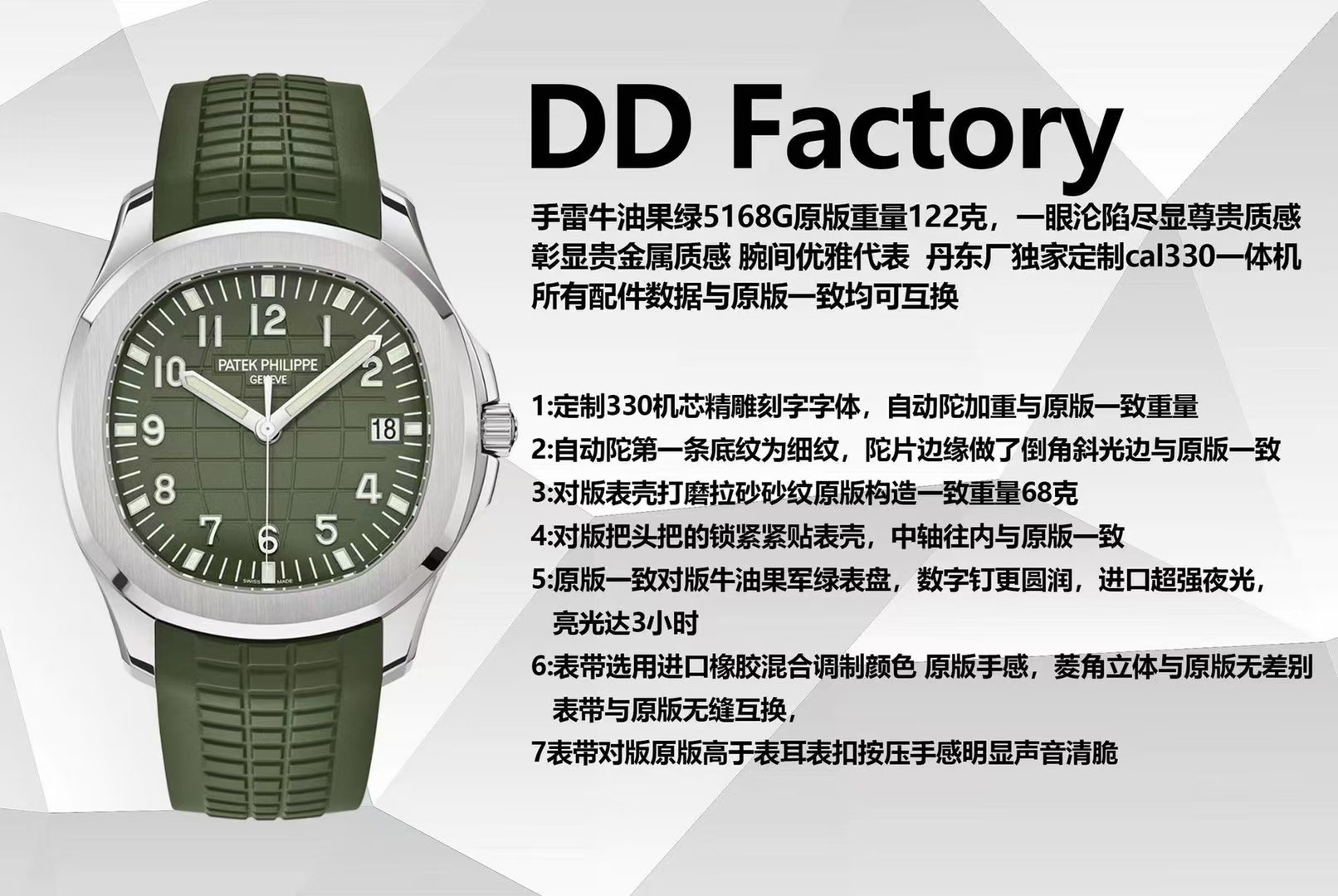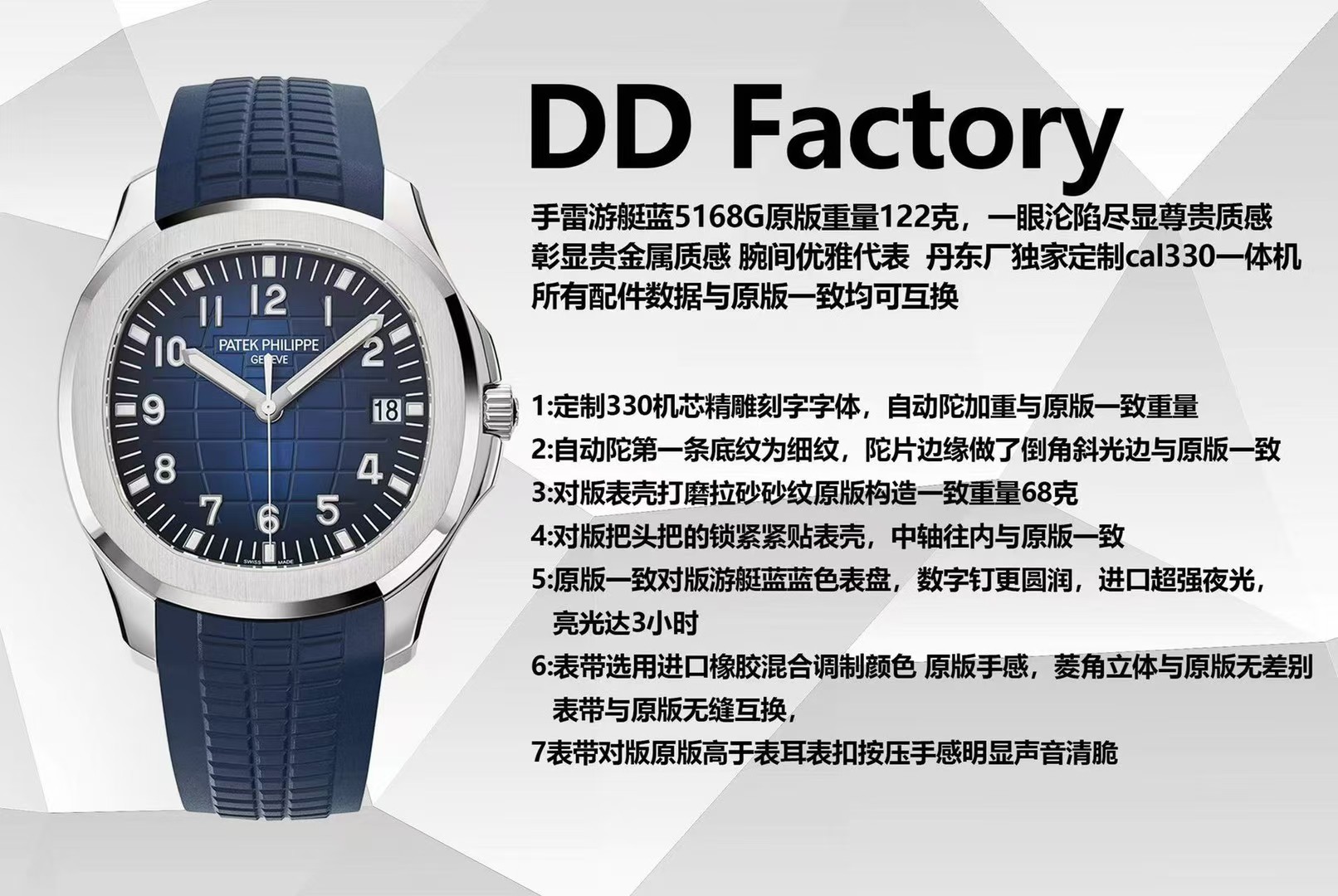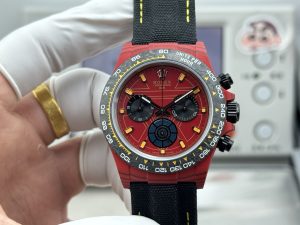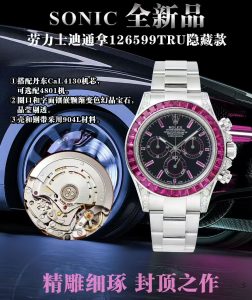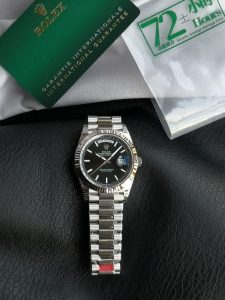The world of replica watches is complex, inhabited by enthusiasts seeking the look of luxury without the accompanying price tag. The DDF’s Avocado Green 5168G replica is a striking example of this dynamic, offering a watch with meticulous attention to detail and craftsmanship, mirroring its original counterpart down to the gram. This article delves into the technical precision and ethical implications of such replicas, exploring why they garner both admiration and skepticism.
The Intricacies of Craftsmanship
Weighing in at 122 grams, just like the authentic model, the DDF Avocado Green 5168G replica is a testament to the factory’s dedication to precision. The exclusive customization of the cal330 movement ensures all components and data align perfectly with the original, enabling an interchangeability that is rare among replicas. The dial color is modulated from a 1:1 mold of the original, with rounded digit markers and high-grade luminous materials that promise up to three hours of glow, maintaining the same luminous color consistency across the hands and markers.
The movement’s automatic rotor, meticulously engraved, mirrors the original with reinforced weight and detailed chamfered edges. Every detail, from the sanded case finish to the tightly fitting crown aligned with the central axis, recreates the luxury experience. The casing, weighing 68 grams, mimics the original’s structural finesse, ensuring that even seasoned watchmakers might struggle to differentiate at a glance.
Material and Design Fidelity
The replica’s strap is crafted from imported rubber, achieving an authentic feel that matches the original’s tactile sensation. Its color modulation and three-dimensional angular precision are indistinguishable from the original, allowing for seamless interchangeability. The buckle’s press mechanism is designed to replicate the crispness and distinct click of the original, complete with detailed metal stamping that includes luxury markings.
Ethical Considerations: The Thin Line Between Craftsmanship and Counterfeiting
The production of high-caliber replica watches like the DDF Avocado Green 5168G raises ethical questions. While some see replicas as accessible luxury, others argue they undermine the artistry and economic structure of renowned watch brands. These replicas provide a less costly alternative, but they also blur the line between appreciating fine horology and infringing upon intellectual property rights.
The economic implications are worth pondering. The replica industry thrives on the allure of owning a prestigious design without the associated financial burden. However, this can dilute the value of the luxury brand’s distinction, which relies heavily on its reputation, scarcity, and craftsmanship. Despite the precise mimicry, a replica watch lacks the heritage and quality assurance that justify the higher costs of genuine models.
The Psychology and Personal Value of Replica Watches
The choice to buy a replica often oscillates between psychological satisfaction and social signaling. For many, wearing a replica affords a semblance of status and success without the economic strain. Yet, there remains a personal dichotomy: the pride of ownership versus the authenticity of experience. The psychological comfort of owning a prestigious-looking watch can be weighed against the ethical costs and the fleeting nature of contrived exclusivity.
While the DDF’s Avocado Green 5168G achieves impressive precision, echoing the luxury watch experience at a fraction of the cost, it also forces a reflection on what truly defines value. Is it the meticulous craftsmanship and design, or the story and legacy behind the brand? As the replica market continues to flourish, these questions remain central to the discourse on luxury and authenticity.


